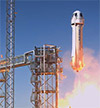Special Investment Report: Metro Atlanta
With Atlanta’s extremely diverse economy, and growth across a wide range of industry sectors, robust job creation is in the forecast, along with a continued drop in the unemployment rate. The metro area continues to grapple with the need to think regionally as it addresses infrastructure and workforce challenges that are related to, and enable this economic growth.
Q3 2014

In the case of PulteGroup, a homebuilding giant that was founded in Michigan, the company’s portfolio was increasingly weighted in areas outside Michigan and the Midwest. Nearly three-quarters of the business was elsewhere by 2000, shifting primarily toward the South and West, and a dozen years later it was more than 90 percent outside of the Midwest. So, last year PulteGroup announced that its home base was moving to metropolitan Atlanta. The 29-country metro area enjoys the nation’s third-largest concentration of Fortune 500 headquarters, behind only New York and Houston. It has the nation’s 10th-largest metropolitan economy, and the world’s 44th-largest, according to the U.S. Conference of Mayors. It was a big deal, worth hundreds of new jobs. Equally impressive, the PulteGroup headline is just one of many reports of good economic news in metro Atlanta, according to Brian McGowan, executive vice president and chief operating officer at the Metro Atlanta Chamber. “One thing that is clear in this region is that the economy has turned up again,” he says. “In the last year and a half we’ve seen an exponential increase in activity in all sectors.”
That activity includes more than 400 new Georgia jobs announced earlier this year by Verizon Wireless, including opportunities in customer service, retail, network, and information technology. Then there’s the $10.8 million athenahealth investment announced last year, worth about 500 high-paying jobs with the cloud-based provider of services for electronic health records, practice management, and care coordination. And coffee lovers aren’t the only people raving about the plans that Keurig Green Mountain announced to open a manufacturing facility in Douglas County — that means $337 million in investments and about 550 new jobs over the next five years.
Economic Diversity and Growth
Expect the good news to continue. A recent report from PNC Financial Services Group predicted that Atlanta would be a “top performer” this year and next. The South is leading the nation when it comes to economic growth, and that bodes well for Atlanta. Robust job creation is in the forecast, along with a continued drop in the unemployment rate. A U.S. Conference of Mayors report expects the jobless rate to drop as low as 5.3 percent by 2016.
Opportunity-seekers from around the country are taking note, McGowan says. “We’re seeing the in-migration of people from other places, including the West Coast and New York,” he points out, explaining that new arrivals like the low cost of living, the quality of life, and the abundance of job possibilities.
“Atlanta has an extremely diverse economy,” he continues. The 29-country metro area enjoys the nation’s third-largest concentration of Fortune 500 headquarters, behind only New York and Houston. It has the nation’s 10th-largest metropolitan economy, and the world’s 44th-largest, according to the U.S. Conference of Mayors.
There’s growth across a wide range of industry sectors, including biosciences and health, information technology, mobility and other technologies, supply chain operations, advanced manufacturing, clean tech, and global commerce. “We’re going to continue to target these sectors,” McGowan says.
Lesser-known, perhaps, is the fact that the area ranks third in the country for film and television production, and fifth in the world, he says. It’s also a hotbed for learning, with some 277,000 students enrolled in 66 colleges and universities.
Getting people and products from here to there is a snap from an Atlanta location. In terms of passenger volume, Hartsfield-Jackson Atlanta International Airport is the busiest airport in the world, and 80 percent of the U.S. population is no more than two hours away by air. It takes two days or less to reach 80 percent of Americans by truck, which explains why the area is among the national leaders in distribution. Also helpful is the proximity of the Port of Savannah, which the Georgia Ports Authority says is the fourth-largest container port in the country and the fastest growing.
International Connections
According to Jorge Fernandez, the Metro Atlanta Chamber’s vice president of global commerce, metro Atlanta is a prime place to make international connections. “There are over 3,000 international companies in Georgia, and 2,300 in the metro area,” he points out.
At the chamber, he says, “from an international perspective, our task is to do three things: market Atlanta, recruit companies, and help companies find opportunities overseas. Our global commerce practice goes both ways — inbound foreign direct investment and outbound companies looking for international opportunities.”
The same factors that drive the overall economy attract the global players, according to Fernandez. Beyond the critical mass of global commerce, they pick the region for its role as an economic engine of the Southeast, its transportation advantages, its talent pool and educational assets, its cost-competitiveness and friendly business climate, and its quality of life.
McGowan has been pleased that the boom in local activity includes developments important to quality of life. “You see growth in cultural affairs and quality of life, the things you need to attract 25- or 30-year-olds,” he points out. He cites a range of positive activities, including new sports facilities, the Atlanta BeltLine transportation and economic development effort, the dawn of the modern Atlanta Streetcar system, advancements in the Underground Atlanta shopping and entertainment district, development of the Ponce City Market downtown, and the opening of the National Center for Civil and Human Rights and the newly relocated College Football Hall of Fame.
Growing Pains
With growth, there can be growing pains, McGowan acknowledges. “As we’re continuing to grow, transportation infrastructure is becoming an issue,” he says. Moving people efficiently throughout the region is an ongoing question, and the failure of a transportation tax didn’t help matters. “A lot of discussion is going on about other approaches for raising money to help solve transportation issues. We know that if you are not addressing infrastructure issues, you’re not going to continue to grow.” And the metro area continues to grapple with the need to think regionally as it addresses challenges. “This is one of the largest metropolitan regions in the U.S., but we’re very fragmented,” McGowan says. “A big challenge is to come together, to work together to solve things like transportation and workforce development.”
But even as the area works on its challenges, leaders such as McGowan are pleased with the successes and the refreshing signs of growth. “There are not many places you can drive in Atlanta,” he says, “without seeing a construction crane somewhere.”



